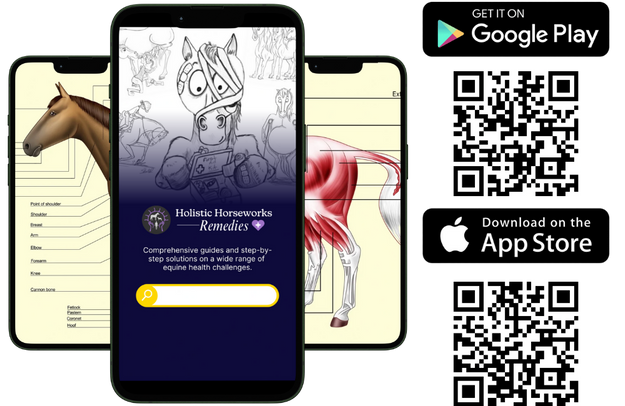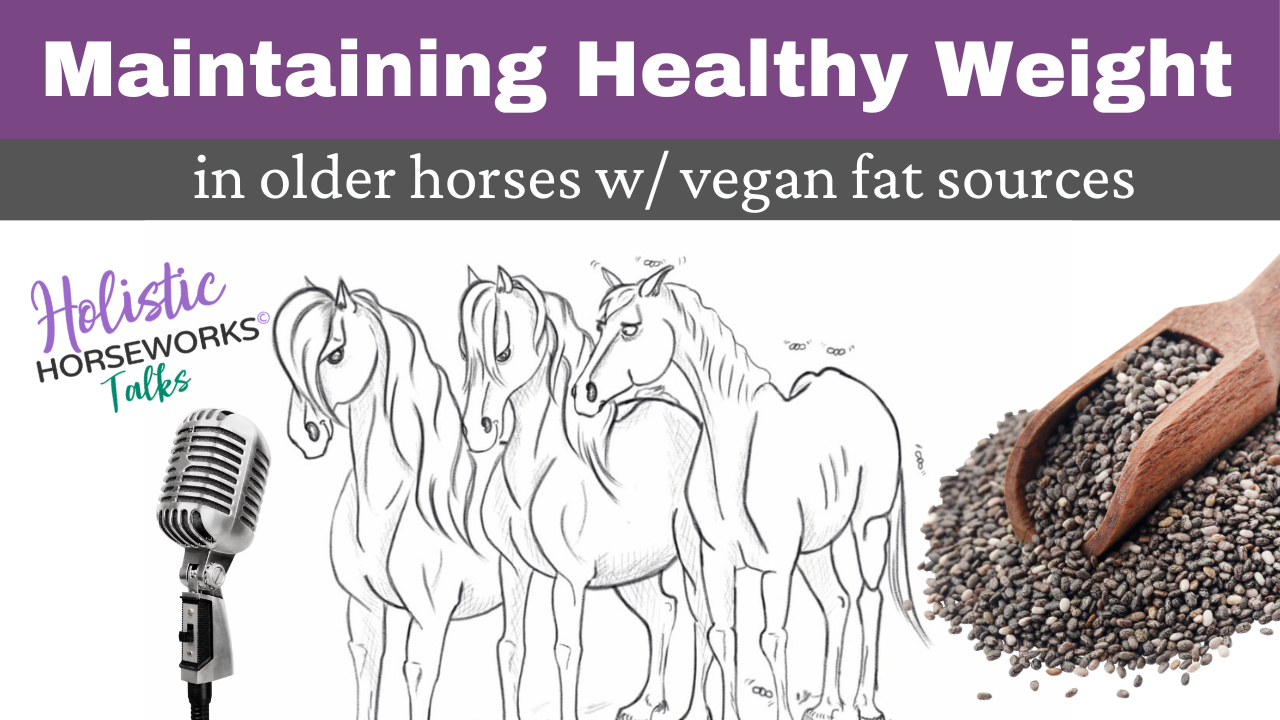
Maintaining Healthy Weight in Older Horses with Vegan Fat Sources
Welcome to another insightful episode of Holistic Horseworks Talks! In this episode, our founder, April Love, shares valuable information on maintaining the well-being of older horses, focusing on a simple recipe for a vegan fat source. The discussion delves into practical tips for horses with missing teeth, difficulty gaining weight, and the importance of identifying and addressing insulin resistance.
Episode Transcription
Expand to read more...
00:00:01 Speaker 1
Welcome to Holistic Horseworks Talks. Join us with founder April Love as we talk about equine care. Learn what you can do to keep your horse happy, healthy, ridable, and sound through their 30s. Have a question you’d like to submit to the podcast?
00:00:20 Speaker 1
Just e-mail April at holistichorseworks.com for a chance to get it featured on the next episode.
00:00:31 Speaker 2
Hi, this is Amy Callahan. In this episode, April gives a simple recipe for a vegan fat source for our older horses, horses who may be missing teeth, or horses who just can’t seem to put on weight.
00:00:44 Speaker 2
She also shares how she fed Tiki for her endurance rides when he had just minutes to fuel up for the next leg of the ride, and we finished up talking about keeping weight healthy, and watching for hidden sugars and insulin resistance.
00:00:59 Speaker 2
So April, please tell us your strategy for putting weight on older horses.
00:01:04 Speaker 3
And I always tell people to soak chia seeds if you want to feed a vegan, which is your horse.
00:01:11 Speaker 3
A vegan fat source. It is not GMO corn. Go get some vegan chia seeds, some organic chia seeds which you can get a large bag for $7-8 dollars and you soak it like for a couple of days. You can make up a big batch and you just I mean they expand to like.
00:01:30 Speaker 3
Four times the size.
00:01:31 Speaker 3
And it’s a good way to get moisture into the gut, especially when the horse isn’t drinking a lot when the water’s, you know so cold in the winter for drinking.
00:01:40 Speaker 3
So if you want to give them a vegan fat source, I do the chia seeds. I know a lot of people feed the black oil sunflower seeds, but.
00:01:50
To me.
00:01:52 Speaker 3
When you’re not flossing and you’re not brushing your teeth and those little things can break off and splinter, I’m more worried about it getting like below the gums and stuff, so never real big on feeding black oil sunflower seeds because they do the shell.
00:02:06 Speaker 3
And all.
00:02:07 Speaker 2
And does the horse process the shell out or does it like become a blockage?
00:02:15 Speaker 3
They’re pretty small, but it was supposed to be the roughage, the fiber, and the fats. And I just would always look at that and.
00:02:22 Speaker 3
I go.
00:02:23 Speaker 3
I just don’t think that’s a good idea because I used to chew those up in my mouth and I know what happened. So when people ask for a fat source, especially the Icelandic horses that were raised on like.
00:02:34 Speaker 3
Fish oil and fish fat. And I always tell.
00:02:36 Speaker 3
them to do the chia seeds. Chia seeds will take
00:02:39 Speaker 3
water from the environment, like shredded, dried beet pulp. It’s gonna take water from the environment. So you wanna make sure it’s fully soaked.
00:02:48 Speaker 3
Before you do it, and if you’re in a cold environment, you’re going to be keeping it in the house, not going to be soaking and expanding in 30-degree weather.
00:02:57 Speaker 2
And you said soak for how long?
00:03:00 Speaker 3
Well, just till they expand. So if you keep it in the fridge, you can make one batch that would last all week and you just take
00:03:07 Speaker 3
out a cup or two, whatever you want to add to your horse’s feet, but it’s just a really good vegan fat source.
00:03:14 Speaker 2
How often would you add the chia seeds to their food?
00:03:19 Speaker 3
Well, if you’re trying to add a fat source, there’s usually a reason.
00:03:23 Speaker 3
So is the horse underweight? Does he not have teeth anymore? What’s his diet like? Are you trying to put weight on him? Because most people go to the sweet feeds and the alfalfa, and that’s going to give you, I call it the Jelly belly. You’re going to have a low-slung belly, but you’re not going to have weight on the top of the back.
00:03:41 Speaker 3
And the top of the butt.
00:03:42 Speaker 3
So you want a carb load for that, which to me I would soak Timothy hay pellets.
00:03:49 Speaker 3
And a little bit of shredded beet pulp without the molasses. And so a lot of horses that are older and having a hard time putting weight on, they stop chewing before they’re full. Like grandpa. OK, my jaw’s tired, I’m done.
00:04:05 Speaker 3
So I would give them the wet mash, especially in the winter time, because when you have a chopped Timothy pellet totally dissolved and the beat pulp, that’s like oatmeal, they can just swallow it and get the rough edge and the fiber and the carbohydrates and then the hays just kind of there for them to play with.
00:04:23 Speaker 3
So it depends on if you’re trying to put the weight on and not make the horse hot.
00:04:28 Speaker 3
You’ll have the.
00:04:29 Speaker 3
Online senior feeds and if you read the protein and sugar content, I’m like, oh, great, we’re going to give our kids candy before bed.
00:04:39 Speaker 3
You know, and it’s just. Yeah. You have weight on your horse, but it’s not in the right areas.
00:04:45 Speaker 3
You have a.
00:04:45 Speaker 3
Really big belly. You can still feel the ribs. You still have a sunken hind end.
00:04:51 Speaker 3
So when they switch to the vegan fat and the carbs, you have a lot of weight on the top of the back to actually carry and put the
00:04:58 Speaker 3
saddle on.
00:04:58 Speaker 3
If you’re still riding them, so when people are asking how much you just have to kind of play around with how much weight does my horse need? Does he finish all his mash? You know, what’s our goal?
00:05:11 Speaker 3
You we do 100-mile endurance rides and I just need to get some easy fat and carbs into them quickly cause it makes a really good mash and they hardly need to chew.
00:05:23 Speaker 2
Speaking of GMOs and beat pulp and molasses, are you recommending organic beet pulp and organic molasses?
00:05:32 Speaker 3
And you don’t need the molasses, so I would always say that I did the shredded beet pulp without the molasses.
00:05:38 Speaker 3
So the beet is actually really.
00:05:41 Speaker 3
Good for the horse.
00:05:42 Speaker 3
But they take all the good part out, and what’s left really isn’t that great. It’s not something that I would want to raise a foal or young horse on. It’s just something for like, Grandpa gotta give him some roughage and some water to kind of keep things moving on the endurance horses.
00:06:00 Speaker 3
To do 50 miles in 5-6 hours, we would preload their gut with all the extra moisture with the electrolytes and the beet pulp and the roughage to keep things moving and to give them that reserve before we did the ride and then at the halfway point they’re just going.
00:06:16
You know they
00:06:17 Speaker 3
only have 20 or 30 minutes to eat, and they’re so hungry. But then as soon as they do because they’ve been running their stomach
00:06:22 Speaker 3
I think shuts down and then like, Oh my God, so if they don’t have to really break down the food and it’s already soaking and broke down, it’s not something that I fed all the.
00:06:31 Speaker 3
Time and it’s not something I would train a four-year-old horse on or I give an easier keeper on, but it is nice way to get, and especially in the senior horses, some roughage and fiber and you can get any kind of. It’s really hard with getting hay nowadays. Oat hay pellets I prefer Timothy is #1.
00:06:51 Speaker 3
Orchard grass, #2. And then, like the alfalfa orchard, glass blend is like #3. Everyone says they need a little bit of calcium. But.
00:07:00 Speaker 3
Calcium adds to arthritis, side bone ringbone, or arthritic knees. So I don’t feed a lot of alfalfa. You have to kind of go by what’s in your area, the country. When I went to Australia, I told her her Arabian endurance horse was too skinny and because she’s running on protein, alfalfa. She and she kept saying I’m not feeding alfalfa.
00:07:20 Speaker 3
You’re not feeding alfalfa, I said. Your horse looks like you’re feeding alfalfa.
00:07:24 Speaker 3
And she finally looked up and Googled what she was feeding Lucerne. It’s alfalfa. She didn’t realize, you know, different countries, different things and what’s available. And I was teaching in the UK.
00:07:37 Speaker 3
And it rains so much they can’t even dry the hay, so they roll it up in these big balls and put Saran wrap around it and they call it silage. But it’s fermenting inside. Then it’s really high in sugar, so they have a lot of problems, you know, with the hay and stuff over
00:07:52 Speaker 3
there and trying to get dried pellets or cubes is really hard so,
00:07:58 Speaker 3
since we teach globally, it’s all that can you get in your local area to help stabilize the horse’s whole digestive system.
00:08:07 Speaker 2
In the section about environmental issues, said that you’ve noticed that the horses with IR, Cushing’s, Uveitis. What is IR?
00:08:15 Speaker 3
Insulin resistance. So it’s similar to type 2 diabetes. So what you’ll find is pituitary and hypothalamus are all in play there. And that’s the horses that have been in the knotted rope halters that do the severe pullback and compression. And your hypothalamus is right there under the brain, and it gets smushed in three to four years later. You start to see the long hairs.
00:08:36 Speaker 3
That aren’t shedding out after the winter coat and a little bit of fatty deposits up under the mane.
00:08:42 Speaker 3
And you know, and then there’s that easy keeper horse, just like we are. As we get older with the bad posture.
00:08:49 Speaker 3
All has to do with the pull-back head trauma and it’s not a permanent way of
00:08:54 Speaker 2
life. I’m just kind of curious about what you have learned and experienced about the that Morgan crest.
00:09:02 Speaker 3
Well, Morgans have a thicker neck.
00:09:04 Speaker 3
As a breed, just like apps usually.
00:09:06 Speaker 3
Have hardly any mane and tail.
00:09:09 Speaker 3
But you need.
00:09:10 Speaker 3
To see if it’s in the one area you know, there’s like a certain area right in the middle of the main that really seems to get kind of bigger and crestier than the whole rest of the mane.
00:09:23 Speaker 3
Where you can tell if it’s just a thick, strong neck, Morgan, that the whole neck is a solid thickness and it’s not a fatness, just in one area under the mane.
00:09:35 Speaker 2
And if it is in just that one area, what does that indicate or what are the things that you would
00:09:40 Speaker 2
Start looking for
00:09:41 Speaker 3
the next thing you’re probably going to see is flat soles, thin soles. Crumbly hoof wall.
00:09:48 Speaker 3
Seems to go along with pre-laminitis and those are just the beginning stages. You always see that and that before you see the full-blown insulin-resistant IR horses. There’s stages, they keep getting vaccinations and.
00:10:03 Speaker 3
Chemical fly sprays and it just keeps getting worse because you know it’s a tumor in the pituitary, so that’s affecting.
00:10:11 Speaker 3
You know how they metabolize their sugars and what their body is doing to balance itself and people like, Oh yeah, it did. Kind of. Yeah, he did kind of have those symptoms first. But I just thought it was the
00:10:23 Speaker 3
farrier, it comes back to liver stress.
00:10:26 Speaker 3
You know, and as soon.
00:10:27 Speaker 3
As we do the.
00:10:30 Speaker 3
Nanos, you like detox for them. My Farrier noticed that the hoof wall got thicker and
00:10:36 Speaker 3
stronger so my endurance horse had been on the Dynamite nutritional supplements, but he wasn’t assimilating it, and as soon as I did four weeks of detox on him, his feet just changed cause he was now assimilating 100% of what he was eating and instead of only 60 or 70%, you know, the hoof wall was tight and hard and his feet were going out faster and the hoof wall was twice as thick when he was
00:11:00 Speaker 3
cutting it.
00:11:01 Speaker 3
He was like, I’ve been doing your horse for four years now. What’s different in the
00:11:05 Speaker 3
last six weeks?
00:11:06 Speaker 3
So it ohh I detox them, that’s.
00:11:09 Speaker 3
The only thing that’s.
00:11:09 Speaker 3
Changed. He’s now actually assimilating his nutrition.
00:11:13 Speaker 3
And people say, but it takes.
00:11:14 Speaker 3
A year for that hoof to grow out? Yeah.
00:11:17 Speaker 2
That’s from here to here, but that’s not.
00:11:20 Speaker 3
Yeah, yeah, it’s
00:11:20 Speaker 2
the sole.
00:11:22 Speaker 3
It’s still the whole nutrition. You know, when you’re stressed, your fingernails get brittle. Thank you.
00:11:27 Speaker 2
April for all these great tips.
00:11:29 Speaker 3
Today we are so glad that you were here listening with us today. This is Amy and April with Holistic Horseworks Talks and we look forward to seeing you in a class.
00:11:41 Speaker 3
Or a home study or send April an e-mail with questions about what you heard today, April at holistichorseworks.com.
00:11:51 Speaker 1
Thank you for tuning in to another episode of Holistic Horse Works talks with April Love. Remember to check the show notes for links to all the resources mentioned in this episode. Have a question you’d like to submit to the podcast e-mail April at holistichorseworks.com.
00:12:10 Speaker 1
For a chance to get it featured on the next episode, love this information. Share it with your horse friends, they’ll find it helpful too.
00:12:19 Speaker 1
To learn more, visit holistichorseworks.com and before you go make sure you have a copy of our free ebook Horse 101 everything you wish you had known before you got your first horse at horseacademy101.com.
Vegan Fat Source Recipe
We recommends a vegan fat source made from organic chia seeds. Here’s a quick guide on how to prepare it:
1. Obtain Organic Chia Seeds: Purchase a large bag of organic chia seeds, which can be reasonably priced at $10-15.
2. Soaking Process: Soak the chia seeds for a couple of days until they expand to about four times their original size.
3. Moisture Boost: The expanded chia seeds provide an excellent way to introduce moisture into the horse’s gut, especially in colder weather when horses may drink less water.
4. Alternative to Black Oil Sunflower Seeds: we discourages the use of black oil sunflower seeds due to potential dental issues. Chia seeds offer a safer and more digestible alternative.
Feeding Strategy for Older Horses
It’s important to consider the horse’s overall health, teeth condition, and weight when deciding on a feeding strategy. For older horses with weight issues or missing teeth, a wet mash consisting of soaked Timothy hay pellets and shredded beet pulp (without molasses) can be beneficial. This provides a carb-loaded, sugar free, and easily chewable meal.
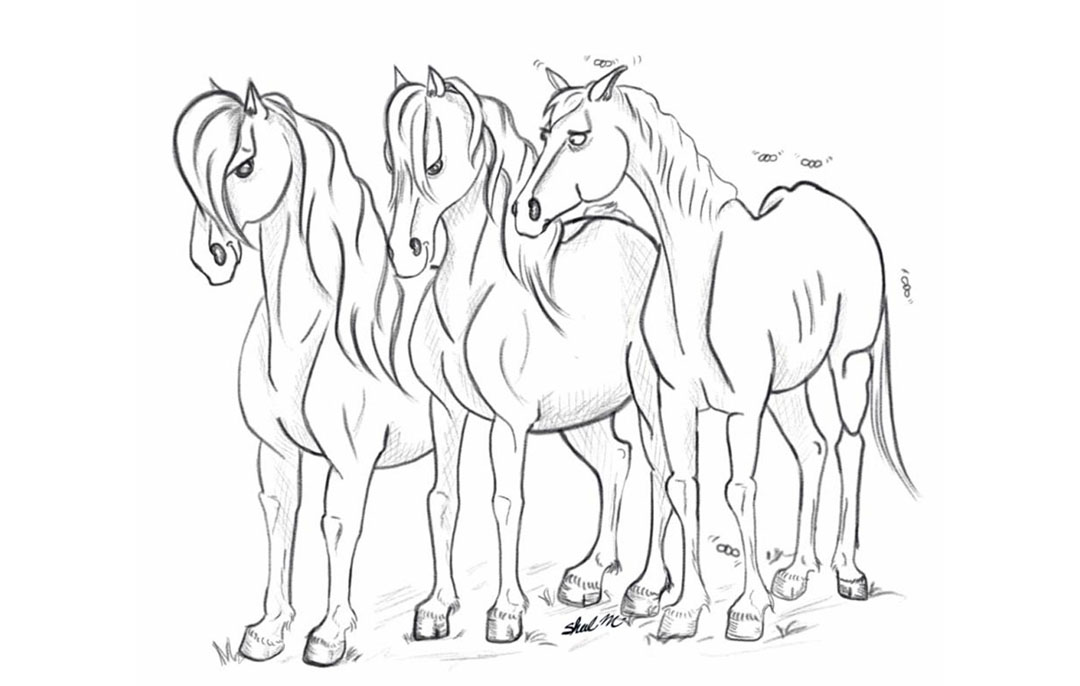
Addressing Insulin Resistance
Insulin resistance (IR) is likened to type 2 diabetes in horses. Something interesting to note is how the pituitary and hypothalamus are often affected due to trauma from knotted rope halters. Signs of IR include long hairs that don’t shed and fatty deposits under the mane.
Notable Observations:
– Morgans, as a breed, may naturally have thicker necks. However, specific cresty areas could indicate issues.
– Flat soles, thin soles, and crumbly hoof walls may signal the early stages of pre-laminitis in horses with IR.
– Environmental factors, such as vaccinations and chemical fly sprays, can exacerbate IR symptoms.
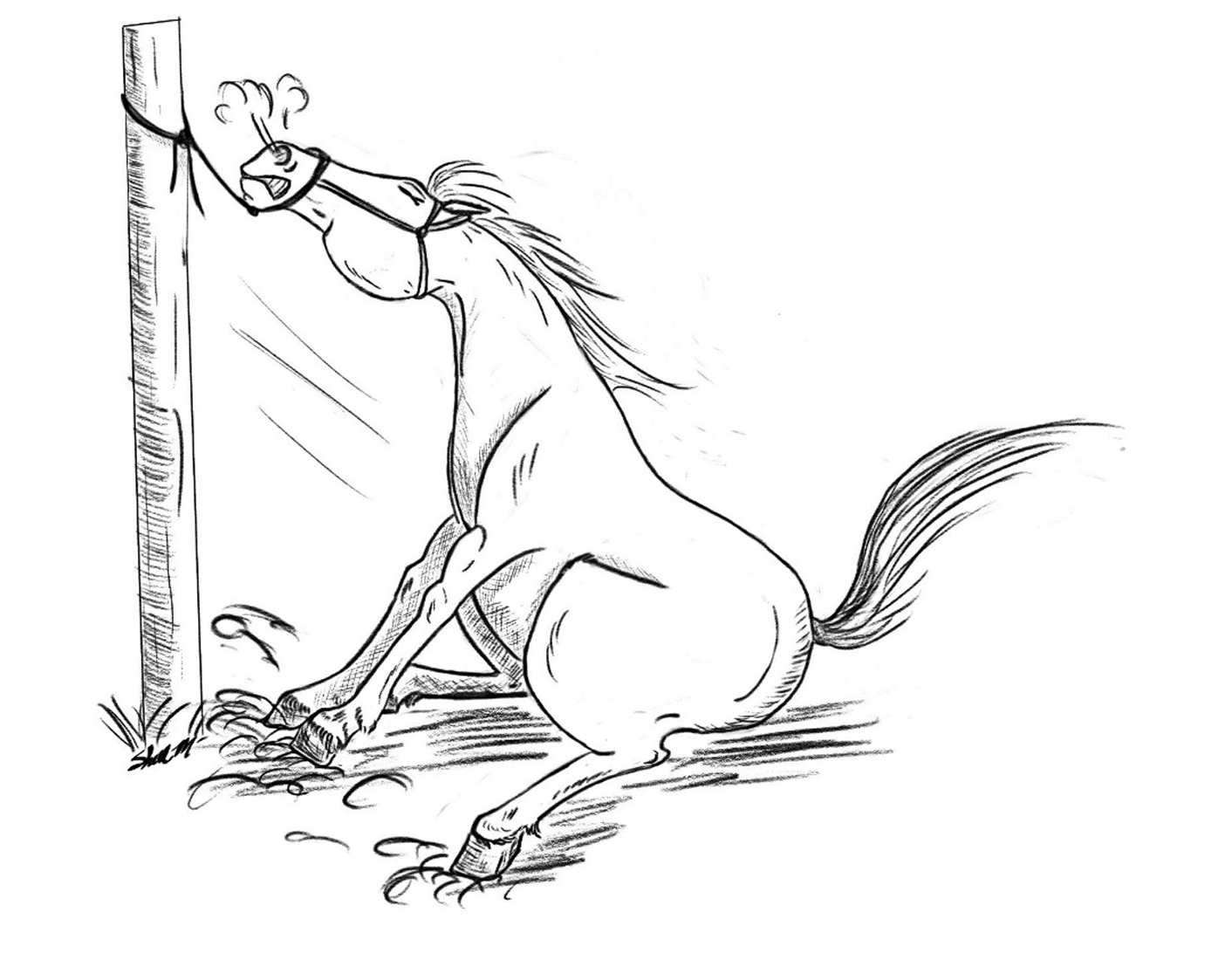
Detox for Improved Assimilation
Nutrition is an important part of maintaining weight along with full body and brain function. If a horse’s body is full of toxins, that will only block them from getting the nutrients they need from any food and supplements you may be giving them, and it can even keep their thyroid from functioning properly. If you’re struggling to maintain weight on your older horse, start with a gentle body detox using NCD drops.
It’s important to understanding each horse’s unique needs and tailoring their diet accordingly. Whether it’s addressing weight concerns, opting for vegan fat sources, or managing insulin resistance, a holistic approach is key to keeping horses happy, healthy, and sound well into their senior years.
Equine Cranial Sacral Energywork
If your horse has ever banged its head, fallen, or pulled back when tied at some time in their life it could cause the Cranial bones to shift. When a horse “pulls back” while tied to a solid fixture, the halter applies a thousands of pounds of pressure to the top of the head while the horse is struggling to free itself. Years later the horse might come up with mysterious issues that can be found on the Equine Cranial pages. Head tossing, spooking, allergies, autoimmune, metabolic issues, and more are signals of this impact.
Unlocking the Secrets of Holistic Horse Care: Insights from the Equine Musculoskeletal Program
In the world of horse care, understanding the musculoskeletal system is vital for ensuring the health and performance of our equine companions. In a recent podcast episode, experts from Holistic Horseworks shared invaluable insights into their musculoskeletal program, shedding light on the importance of holistic approaches in equine health.
6 Must-Know Hore Care Tips for Winter
In this comprehensive guide, we'll share five essential cold weather horse care tips straight from the experts at Holistic Horseworks.Whether you're dealing with freezing temperatures, icy conditions or relentless mud, these strategies will help you keep your horse happy and healthy through even the harshest of winters.
Equine Vaccines: What’s In Them and How to Help Your Horse Naturally
Vaccines are often considered a cornerstone of equine health, but have you ever wondered exactly what’s in them, or how they might be affecting your horse’s long-term health?
Horses Are Talking, Are You Listening?
Holistic equine expert April Love wants you to know: your horse is speaking. And once you learn how to listen, everything changes. In her recent appearance at the Holistic Horse Conference, April sat down with Dr. Jeff Grognet and animal communicator Joan Ranquet to share her revolutionary approach to equine wellness.
How a Distance Reading CHANGED Kimberly and Her Horse
In this interview, holistic healing expert April Love uncovers the deep, often invisible threads connecting horse and human wellness. Join Kimberly, host of The Backyard Horse Enthusiast, as she shares her transformative experience with April's intuitive healing techniques.
Is It Really a Training Problem, or Is Your Horse in Pain?
If your horse bucks, resists the canter, or just feels off under saddle, the first thing many people assume is that it’s a training issue. Maybe the horse is being stubborn, or maybe it just needs more groundwork. But I want to let you in on something I’ve seen over and over again—those “training problems” are almost always your horse trying to say, “Ouch, that hurts!”
Did You Know That Saddle Fit Issues Are Really Horse Body Issues?
Saddle fit isn’t just about the saddle — it’s about the ever-changing body of the horse beneath it. While it’s tempting to invest in custom saddles or quick fixes like padded inserts, lasting comfort and performance come from addressing the root of the issue: your horse’s physical balance and symmetry.
Useful, Helpful Tips and Tricks for Horse Care | April Love’s Interview on The Backyard Horse Enthusiast
What would you do if your horse was limping, colicking, or spooking—and no one could tell you why? That question lit a fire in April Love that would grow into a global mission: helping horse owners uncover the root causes of mystery lameness, behavioral issues, and chronic pain that traditional methods often miss.
How to Find the Cause of Lameness in Horses
When a horse shows signs of lameness, pinpointing the exact cause can be challenging due to compensatory mechanisms. Horses often redistribute weight and movement to avoid pain, making the actual injury difficult to locate. Here’s a practical step-by-step guide to help you identify the root cause of lameness in horses.
Dogs Love Bodywork, Too! (Prevents ACL Tears and Hip Displaysia.)
If you’ve ever watched your dog run and noticed something a bit off—like both hind legs moving together or noticeably dragging their toes—it might be more than just an aging issue or a minor injury. Proactively managing canine skeletal health can prevent long-term joint issues such as hip dysplasia and ACL tears.

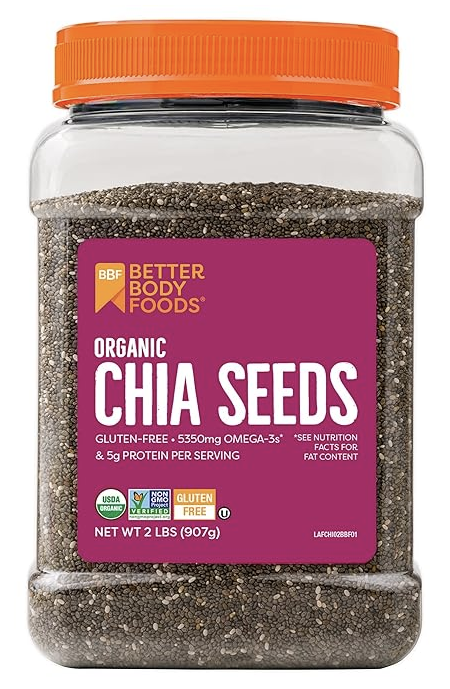
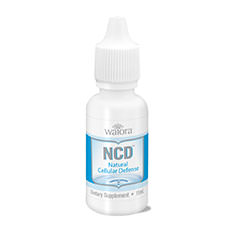


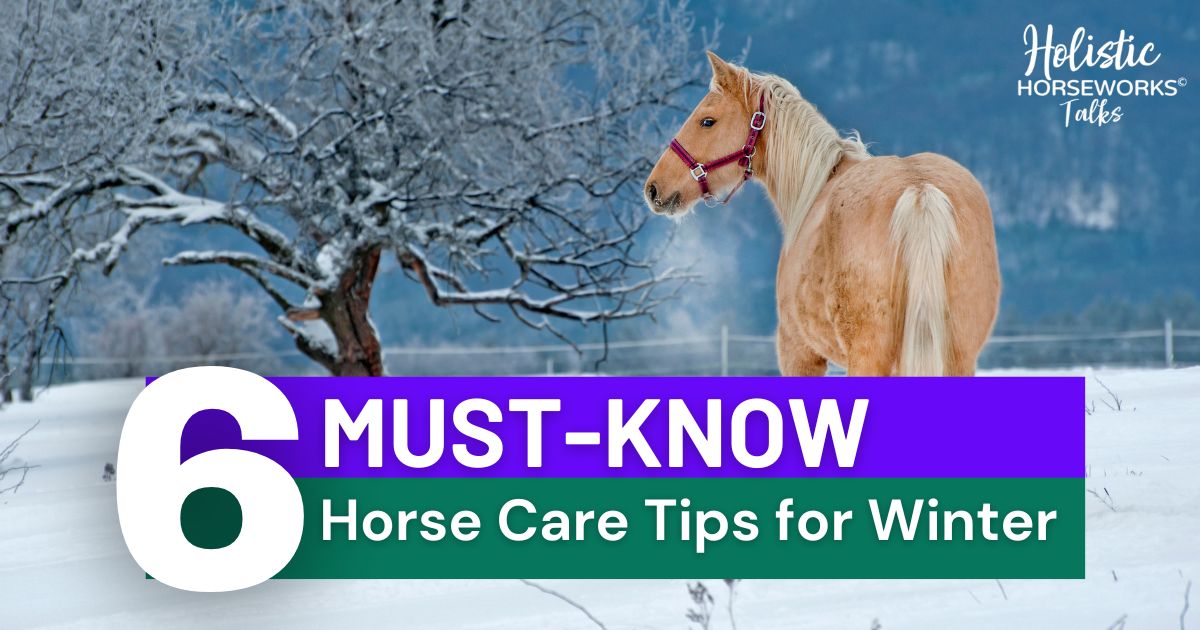
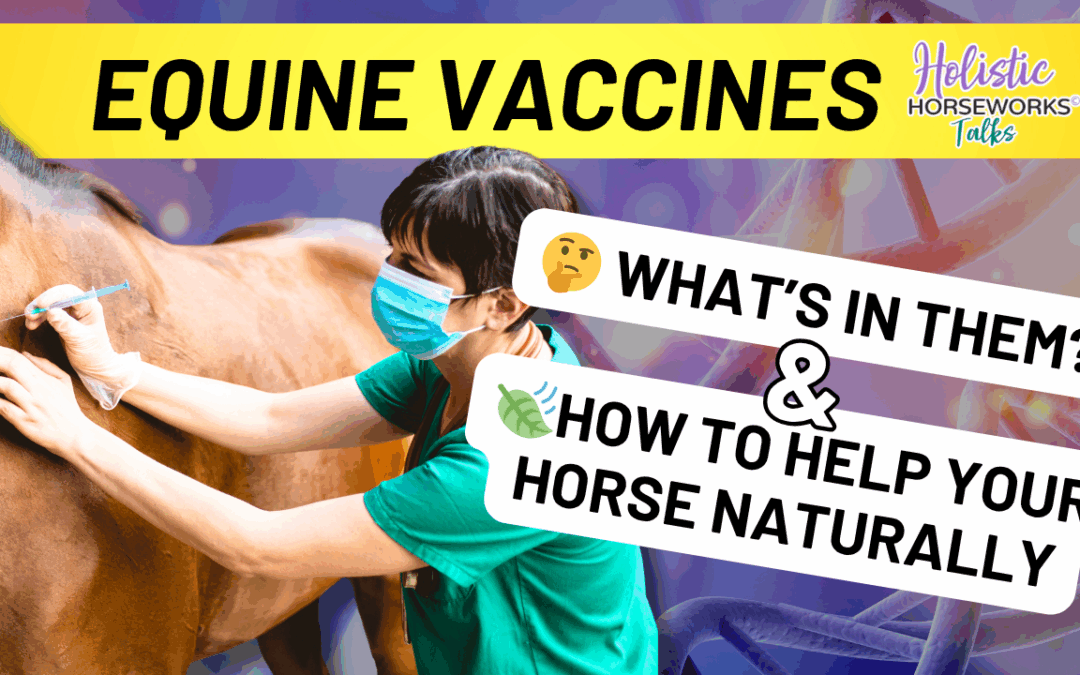
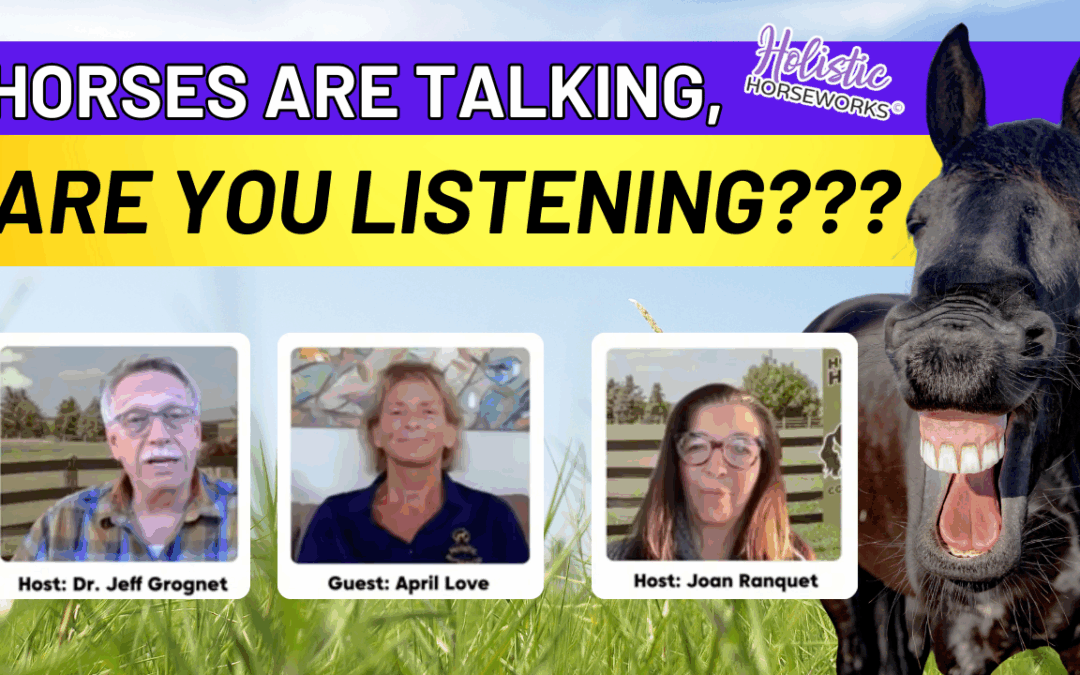
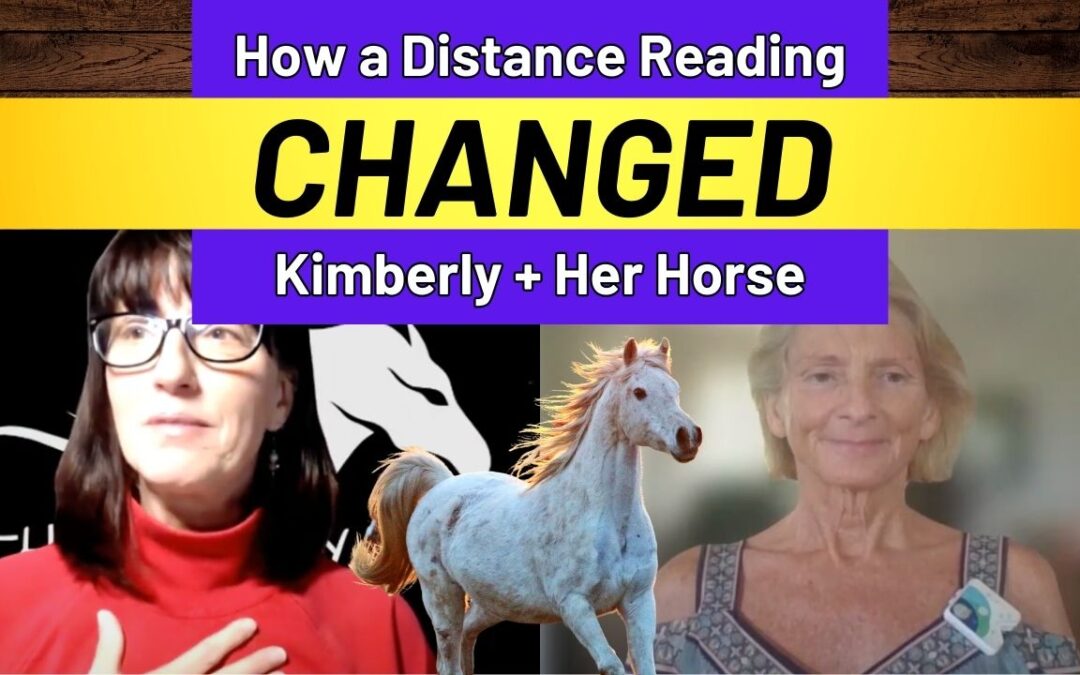
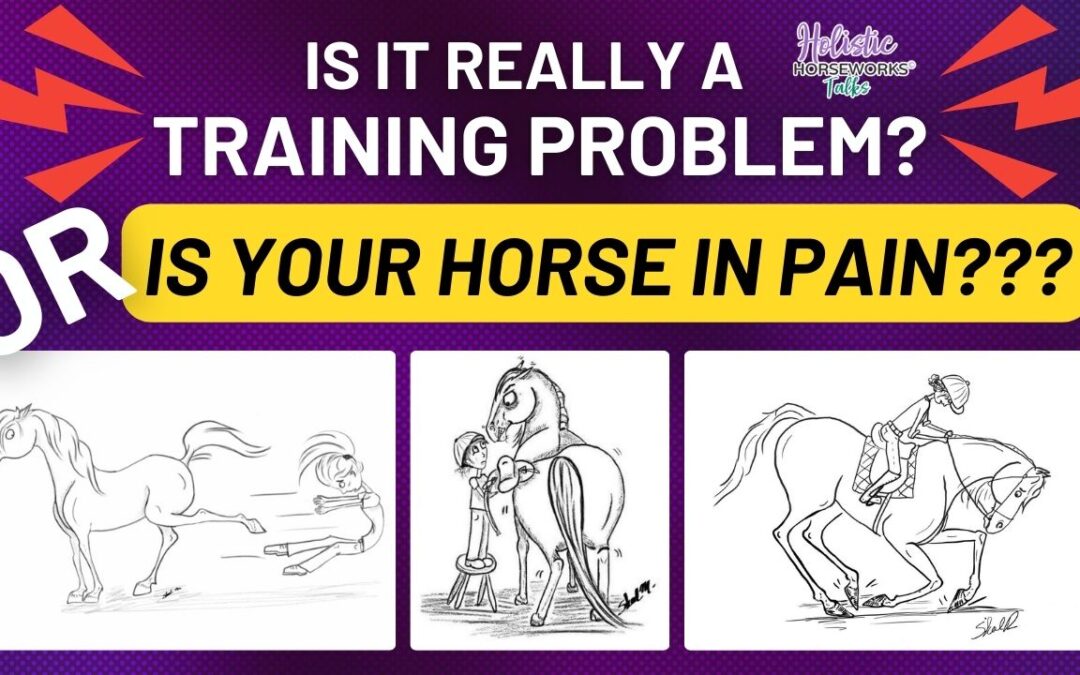
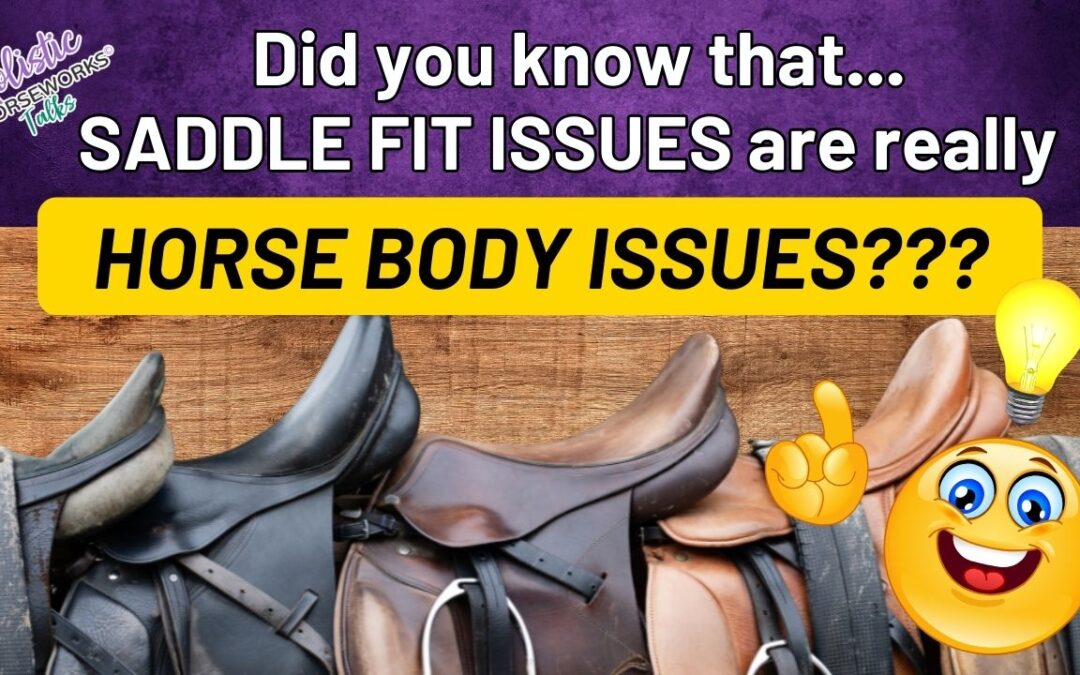
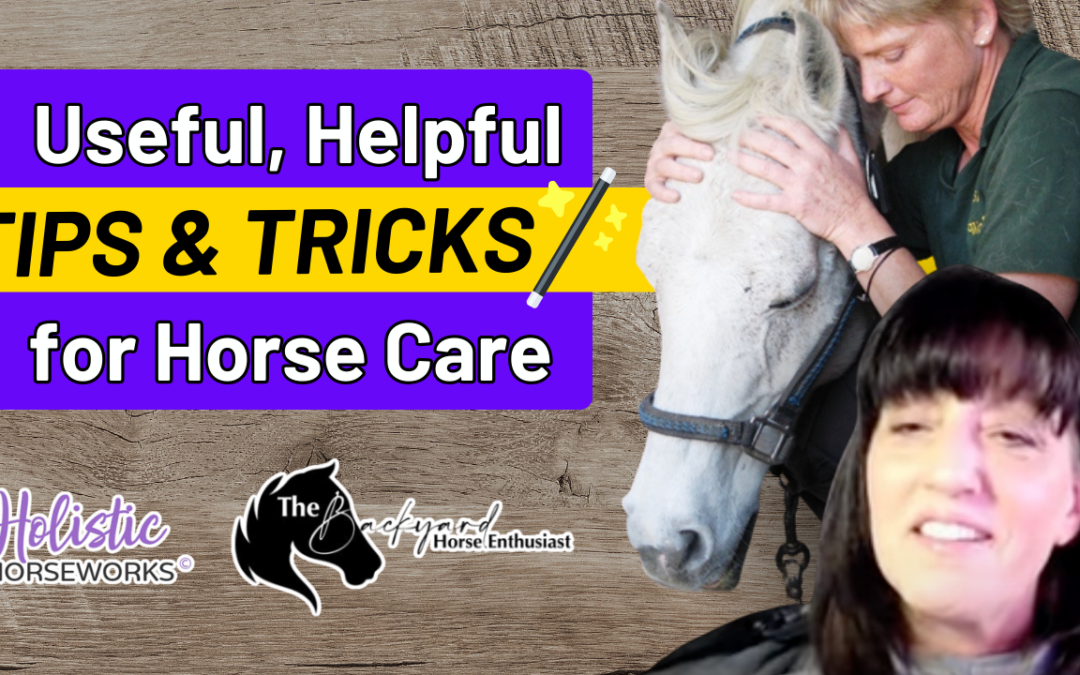
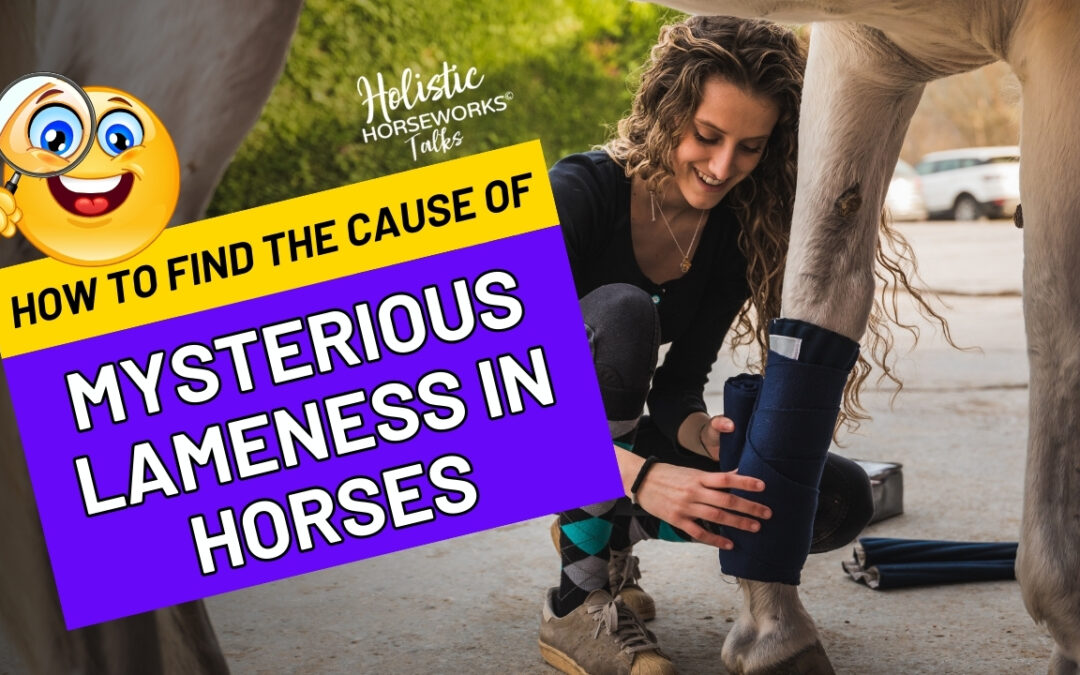
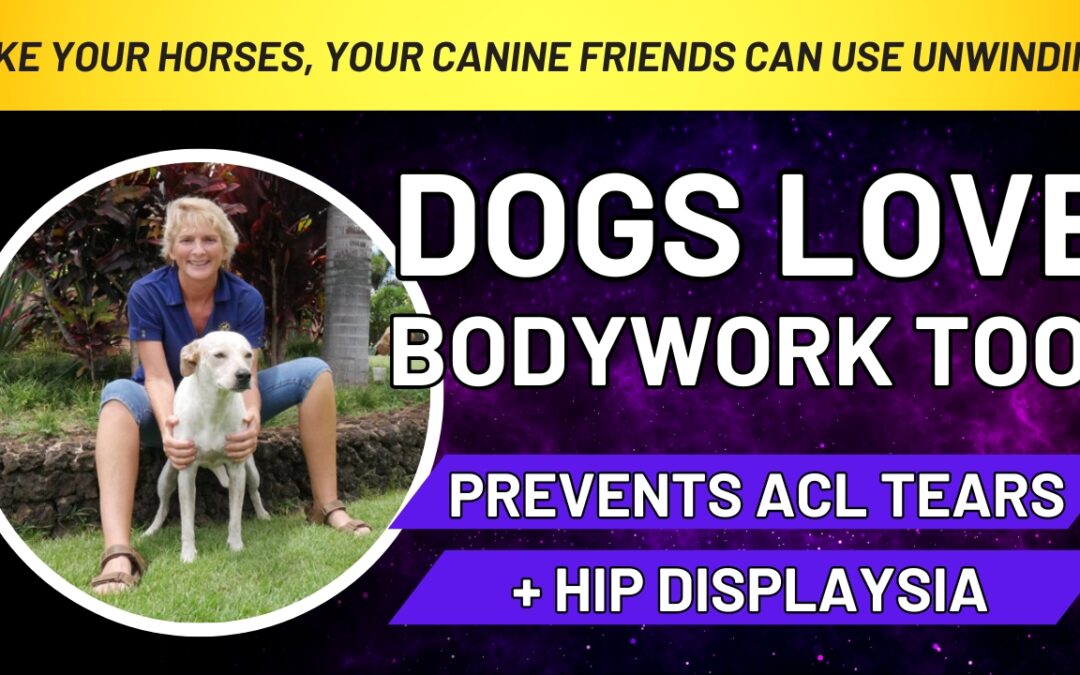
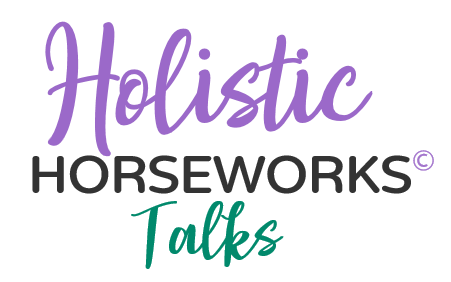
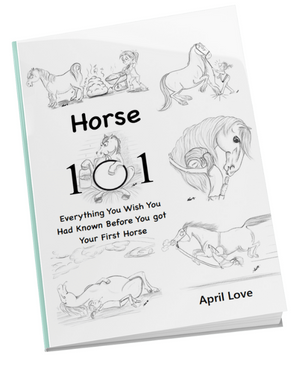
![Complete Level 1 & Level 2 Home Study + Private Training Package [NO DVD]](https://holistichorseworks.com/wp-content/uploads/2022/08/Level-1-and-Level-2-complete-home-study-and-training-package-400x400.jpg)
![Level 1 "Equine Musculoskeletal Unwinding" Home Study -Watch Instantly [NO DVD]](https://holistichorseworks.com/wp-content/uploads/2022/08/Level-1-Home-Study-400x400.jpg)
![Level 2 “CranioSacral Unwinding & Advanced Applied Kinesiology” Home Study - Watch Instantly [NO DVD]](https://holistichorseworks.com/wp-content/uploads/2022/08/Level-2-Home-Study-400x400.jpg)
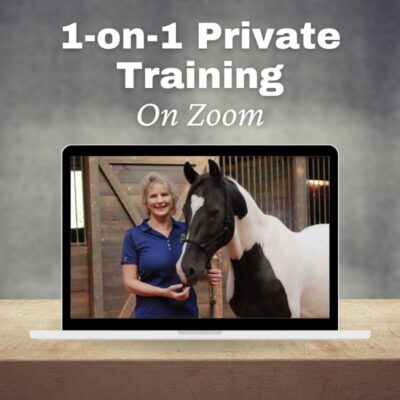
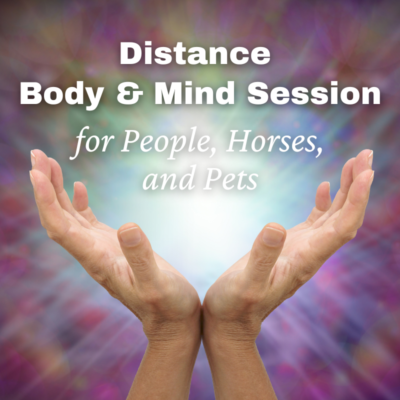
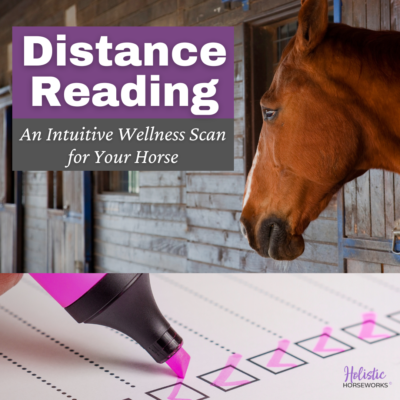
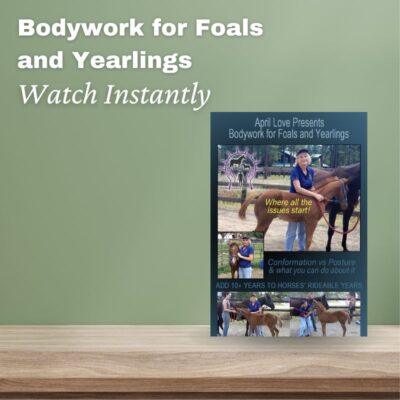
![Equine CranioSacral Energy Work -Watch Instantly [English and French]](https://holistichorseworks.com/wp-content/uploads/2022/09/equine-cranial-sacral-energy-work-watch-instantly-400x400.jpg)
